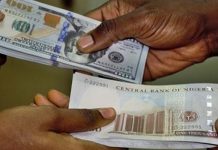The euro slipped on Friday, February 23, and is set to post its second biggest weekly loss in nearly four months as investors trim positions before a big week for global currency markets from a European politics perspective.
The outcome of the Italian general election is due on March 4 and the German Social Democrats poll of its members on joining another coalition government with Chancellor Merkel’s conservatives is also due that day, both events which may trigger fresh market volatility.
With recent surveys and the European Central Bank’s minutes of its January policy showing some signs of caution among policymakers about the bloc’s economic prospects with the backdrop of a strong euro, investors are searching fresh catalysts to drive the currency higher.
In a market where long euro bets are at their largest on record, according to CFTC positioning data, any less than optimal results from either of these two major political events may prompt some funds to sell the single currency.
“Apart from the political factors, the dollar’s outlook also appears to be more constructive in the short term thanks to the rising yields,” said Manuel Oliveri, an FX strategist at Credit Agricole in London.
Markets are assuming from opinion polls that there will be no clear winner to the Italian polls, with either some loose coalition or a minority government likely to emerge.
Indicating the growing caution among European policymakers, ECB officials rejected even a token change in the bank’s policy message, arguing that it was premature to signal policy normalization given weak inflation, the minutes of its January meeting showed on Thursday.
That caution is also reverberating in the bond markets with U.S. yields rising by more than 50 basis points since early December, more than a 38 basis point in German government debt.
Benchmark Treasury 10-year note yields US10YT=RR rose to a four-year high of 2.957 percent on Wednesday before falling back to 2.904 percent on Thursday.
The prospect of the U.S. government boosting debt issuance to fund expanded stimulus and the Federal Reserve hiking interest rates steadily this year are some of the factors that have contributed to the rise in yields.
The yen showed little reaction to data which showed Japan’s annual core consumer inflation rate was unchanged in January from the previous month, reinforcing views that the Bank of Japan remains distant from exiting its super loose monetary policy.
Japan’s nationwide core consumer price index, which includes oil products but excludes volatile fresh food costs, rose 0.9 percent in January. The pace remained far from the BOJ’s 2 percent inflation target.












